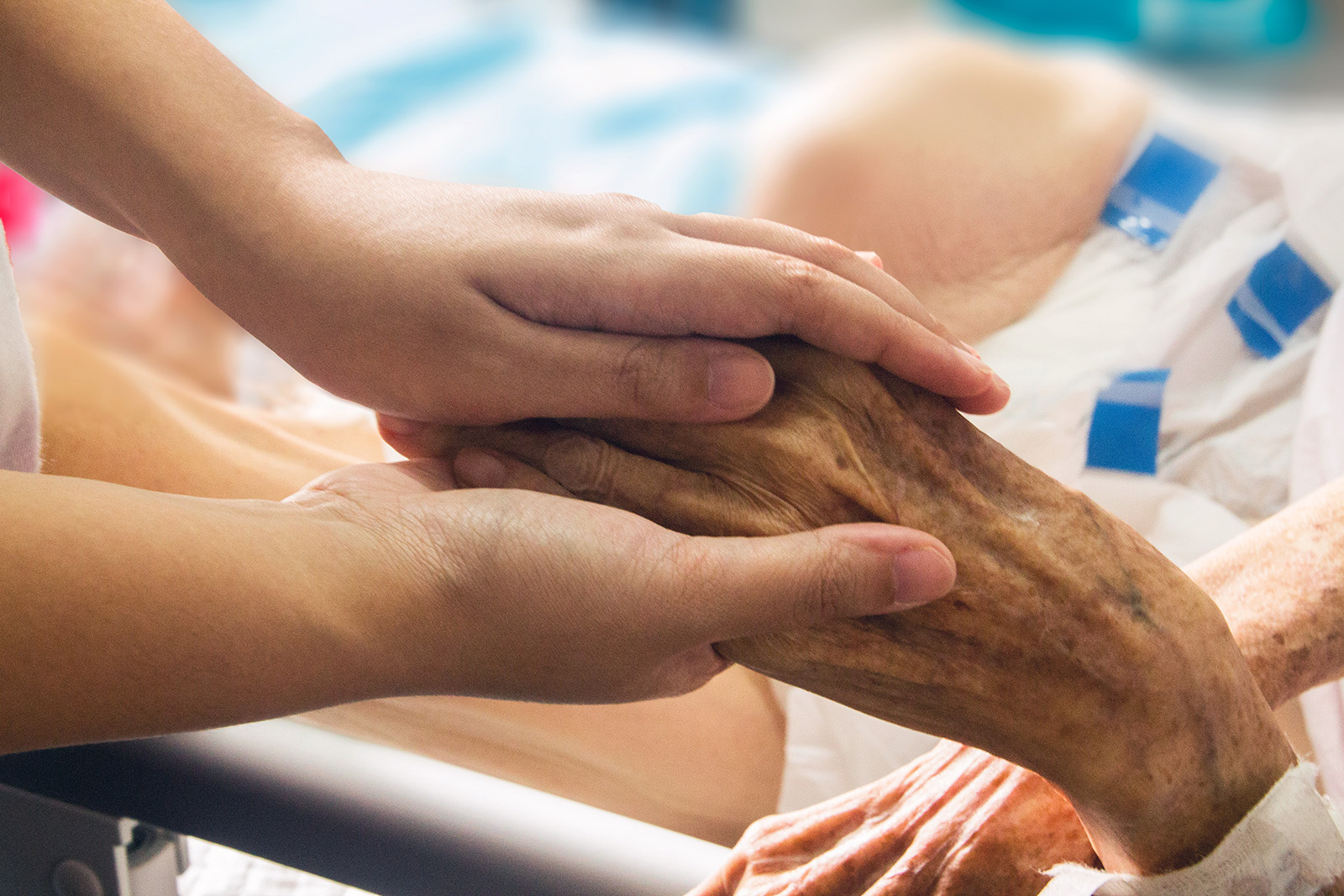
(RNS) — “My religion is watching CNN,” a feisty elderly woman with cancer recently told a hospital chaplain who had knocked on the patient’s door to introduce himself. The patient, in a thin blue hospital gown, held her hands up in front of her in a cross. “That is my religion: politics and science. Get out! I don’t want you! You are an anathema to me!”
The chaplain was unsure how to respond. He retreated, shaken, but the next day, ventured to return.
“Hi, remember me?” he said.
“Yeah…?” she said, deep suspicion in her voice.
“I know your religion is CNN,” he said, “but what do think about what’s going on now in the world?”
They ended up talking about the president, and her concerns about our troubled world. Eventually, they developed a rapport, and she described her deep loneliness and terror of dying. At the end of their conversation, she felt better, grasped the chaplain’s hand firmly and said, “Thank you!”
Given our nation’s shifting religious landscape and growing political and religious divides, I recently decided to study how people with serious disease, along with their family members, and doctors and chaplains grapple with the ultimate crises in human lives — what these patients end up believing, whether their views about faith change and, if so, how.
Countless patients and their families find that their prior beliefs no longer aid them as they had assumed. They embark on new journeys, frequently struggling to convey their religious, spiritual and existential views and drawing on a wide variety of terms and metaphors — even CNN.
But after interviewing scores of individuals from across the country, I ended up focusing in large part on chaplains.
In recent decades, the proportion of Americans who are “religiously unaffiliated” has risen sixfold, and the percentage of “Christian” individuals has dropped about a third. Partly as a result, chaplains have, at the same time, increasingly gained training in interfaith and nondenominational approaches, and frequently see their profession as “post-religious” — extending beyond the boundaries of any one particular faith; taking nondenominational, multifaith and humanistic approaches; and commonly receiving training in counseling.
With these skills they aid patients, from evangelical to agnostic, atheist and “nothing in particular,” in resetting priorities and finding sources of connection, meaning, purpose and hope. Strongly committed to aiding vulnerable and underserved populations, chaplains remind doctors to uphold the dignity of every patient.
Physicians, on the other hand, commonly dismiss their patients’ religious, spiritual and existential concerns. When doctors ask, “How are you doing?” patients sometimes say, “I’m just praying that God will help me,” or “I’m hoping that God is ready for me!” Doctors frequently respond with something like, “Well, have you been taking your medications this month?” rather than sensing that the patient may be expressing or hinting at underlying religious, spiritual or existential worries.
In a few areas, notably hospice and palliative care, doctors tend to recognize chaplains’ roles. But in many other fields, physicians often ignore these realms altogether and marginalize, undervalue and underfund chaplains. Studies show that 62% of chaplains feel left out of medical team discussions and that about about 65% of hospitals lack chaplains altogether.
Chaplains are frequently the only hospital staff member with time to sit and speak with patients and families, gleaning medically important information, but often do not feel encouraged or empowered to bring patients’ concerns to doctors. Doing so, though, can be crucial.
One chaplain I interviewed described a woman who periodically came to the emergency room complaining of pain. The staff had labeled her as “drug-seeking” and avoided her request. One night, she arrived, looking far more distressed than usual, but the staff still dismissed her complaints. The chaplain, though, sensed something was different and called a gastroenterologist she happened to know from the hospital ethics committee. He came and found that the patient had a kinked bowel, which can be potentially fatal. The patient then received appropriate treatment.
At times, patients, families and doctors also clash over whether and when to stop aggressive, but futile, treatment. Often, chaplains mediate such tensions, helping each side to grasp the others’ perspective.
Still, overall, chaplains tend to be far less respected than they should be. Doctors and hospitals commonly focus on medical science and ignore or downplay other, more human and humanistic aspects of patients’ experiences. Many patients still think chaplains are each simply clergy from just one particular religion.
I came away from my research thinking the field should consider changing its name. The term “chaplain” comes from Christianity, yet almost half of the country is not Christian. As the patient who valued CNN indicated, the term “chaplain” may in fact turn some people off. Terms such as “spiritual care counselor” or “spiritual care provider” may lead to acceptance from medical staff and patients.
I also learned the importance of listening in medical environments. The frail, elderly woman who initially rejected the chaplain taught him — and me — how broadly people define their beliefs and use metaphors, often unexpectedly. She showed how important it is to speak with others whose views may differ from our own, and to see what they mean by the terms they use to convey their views.
This kind of listening is something we could all do in our current era of political divisiveness. Many people disagree about outward words and symbols but, when probed, ultimately struggle with similar concerns. The more we listen to each other’s beliefs, the more we find shared hopes.
(Dr. Robert Klitzman, a professor of psychiatry and director of the master’s of bioethics program at Columbia University, is the author of “Doctor, Will You Pray for Me?: Medicine, Chaplains, and Healing the Whole Person.” The views expressed in this commentary do not necessarily reflect the views of RNS.)
